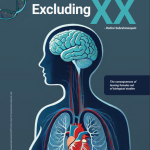Dr. Smitha Karunakaran

Biosketch
Smitha Karunakaran, Ph.D., is an Assistant Professor at the Centre for Brain Research. As a neurobiologist specializing in the early stages of Alzheimer’s disease, her research primarily focuses on understanding the sequence of cell-type specific changes occurring in the locus coeruleus and hippocampus, and differentiating these changes from those associated with normal brain aging. This distinction is essential for reconstructing the causal events that lead to the preclinical phase of asymptomatic pathological accumulation, ultimately resulting in dementia.
Smitha completed her PhD at the National Brain Research Centre (Gurgaon, India), where her research focused on the molecular mechanisms underlying selective neuronal vulnerability in Parkinson’s Disease. From 2010 to 2015, she was a postdoctoral fellow at the Friedrich Miescher Institute for Biomedical Research (Basel, Switzerland), where her work primarily centered on the neural circuit mechanisms involved in long-term memory consolidation. In September 2017, she joined the Centre for Brain Research at the Indian Institute of Science as a faculty member.
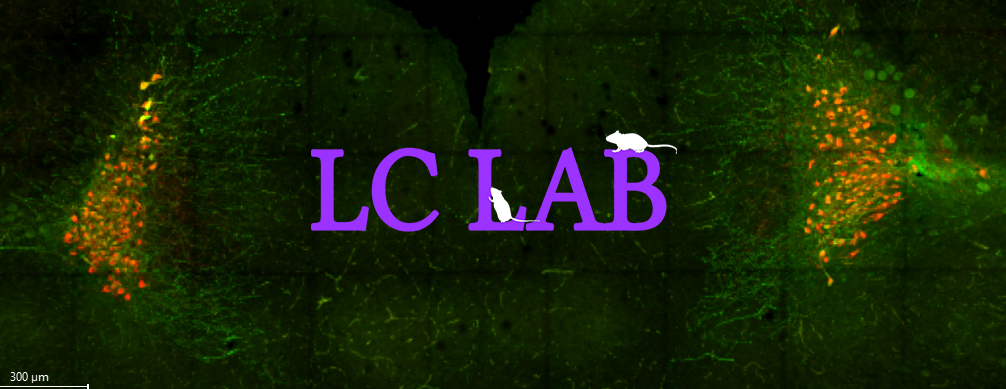
The pathophysiological process of Alzheimer’s disease (AD) begins 20 to 30 years before the onset of clinical symptoms and are characterised by aggregation of extracellular amyloid beta plaques and intracellular hyperphosphorylated tau. The locus coeruleus (LC) is the primary site of hyperphosphorylated tau deposition. LC neurons can persist with tau aggregation for decades before the onset of cognitive symptoms. However, it is still unclear what specifically makes LC neurons vulnerable in the early stages of the disease and how the brain adapts to these changes.
LC organisation and function
The precise architectural arrangement of neurons, which supports accurate neuronal wiring, is crucial for the proper function of neuronal circuits. Our research focuses on understanding the organization and function of the LC in a sex-specific manner, and how this changes during the early stages of AD. Specifically, we aim to investigate how the LC circuit involved in hippocampus-dependent learning is organized and functions in the early phases of AD.
Impact of LC on astrocyte plasticity and function
Astrocytes play a significant role in the remodeling of synapses in both healthy and diseased brains, ultimately influencing behavior. Our research investigates how changes in the LC during the early stages of AD affect the structural plasticity of astrocytes and their critical functions at the synapse. Additionally, we explore the molecular and cellular mechanisms that regulate astrocyte structural plasticity under different physiological states and how these processes contribute to neuronal circuit function and dysfunction in disease.
To achieve this, we use a multi-faceted approach that integrates advanced technologies, including amyloidogenic mouse models, viral tools for circuit tracing and functional manipulation via pharmacogenetics, quantitative behavioral analysis, 3D astrocyte structure analysis, and gene expression profiling.
Collaborators
Prof. Senthil S Kumaran, AIIMS, New Delhi, India.
Dr. Giriraj Sahu, IISc, Bangalore, India.
Dr. Arnab Barik, IISc, Bangalore, India.
Lab Updates
1) Research from Dr. Karunakaran’s Lab featured in the IISc Connect magazine.
2) Srishti Kushwaha’s abstract has been accepted, and she has been awarded a student travel grant to attend the 2025 International Society for Magnetic Resonance in Medicine (ISMRM) Annual Meeting, taking place in Hawaii, USA, from May 10th to 15th, 2025.
3) Dr. Karunakaran gave a talk at the LC Meeting 2024, which took place in Innsbruck, Austria, from September 9-11th, 2024.
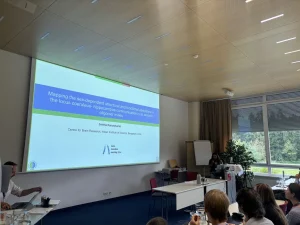
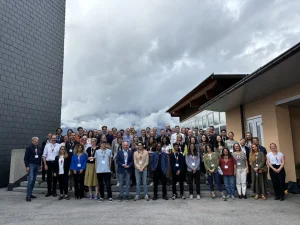
4) Dr. Karunakaran lab’s abstract was selected for a 5-minute blitz talk for the neuromodulatory subcortical system PIA day pre conference session at the Alzheimer’s Association International Conference (AAIC) in Philadelphia, USA, on July 27th, 2024.
5) Srishti Kushwaha bagged the Prof. K.K Srivastava – Prof. L.M Srivastava Young Innovator Award at the 11th IABSCON-2023 for poster presentation organized by the department of neurophysiology, National Institute of Mental Health and Neuro Sciences, Bangalore.
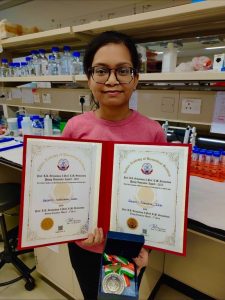
6) Srishti Kushwaha and Rupsa Roy Choudhury presented their work at the EMBO Workshop – Molecular and physiological basis of behavioural/cognitive defects in Neurodevelopmental disorders. 31 October – 03 November 2022 | Bengaluru, India
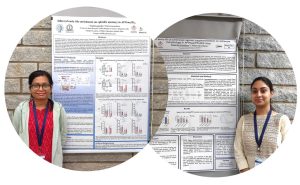
Present lab members

Srishti Kushwaha
Ph.D. Student
About- Srishti has completed her M.Sc. in Zoology from Department of Zoology, Institute of Science, Banaras Hindu University, Varanasi. She has qualified CSIR-NET-JRF and GATE-XL. She is currently a CSIR-SRF at CBR.
Research Interest: Sex-specific differences in the locus coeruleus-hippocampus crosstalk in prodromal AD

Rupsa Roy Choudhury
Ph.D. Student
About- Rupsa has completed her M.Sc. (Integrated) in Biotechnology from Department of Biotechnology, St. Xavier’s College, Kolkata. She has qualified CSIR-NET-JRF, ICMR-JRF and GATE-BT. She is currently a CSIR-SRF at CBR.
Research Interest: The role of astrocyte structural plasticity in regulating neural circuit function in prodromal AD
Lab Pictures
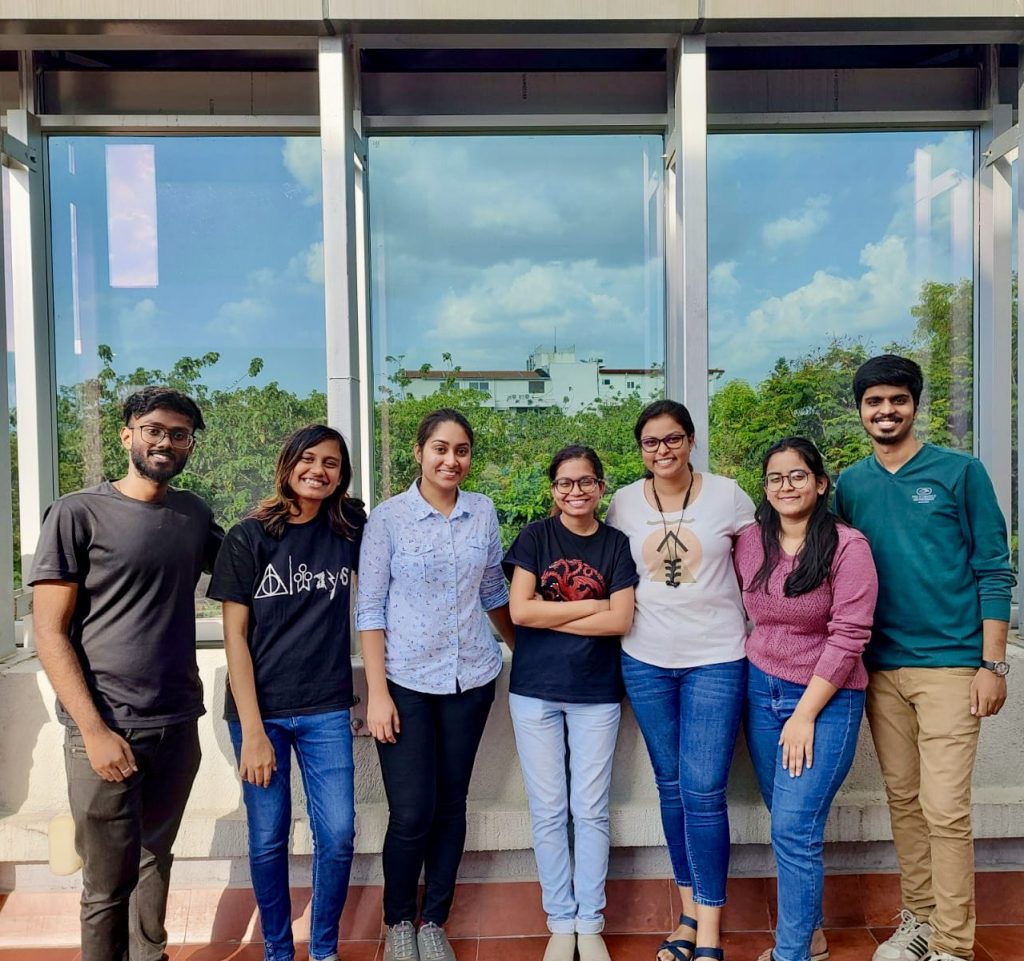



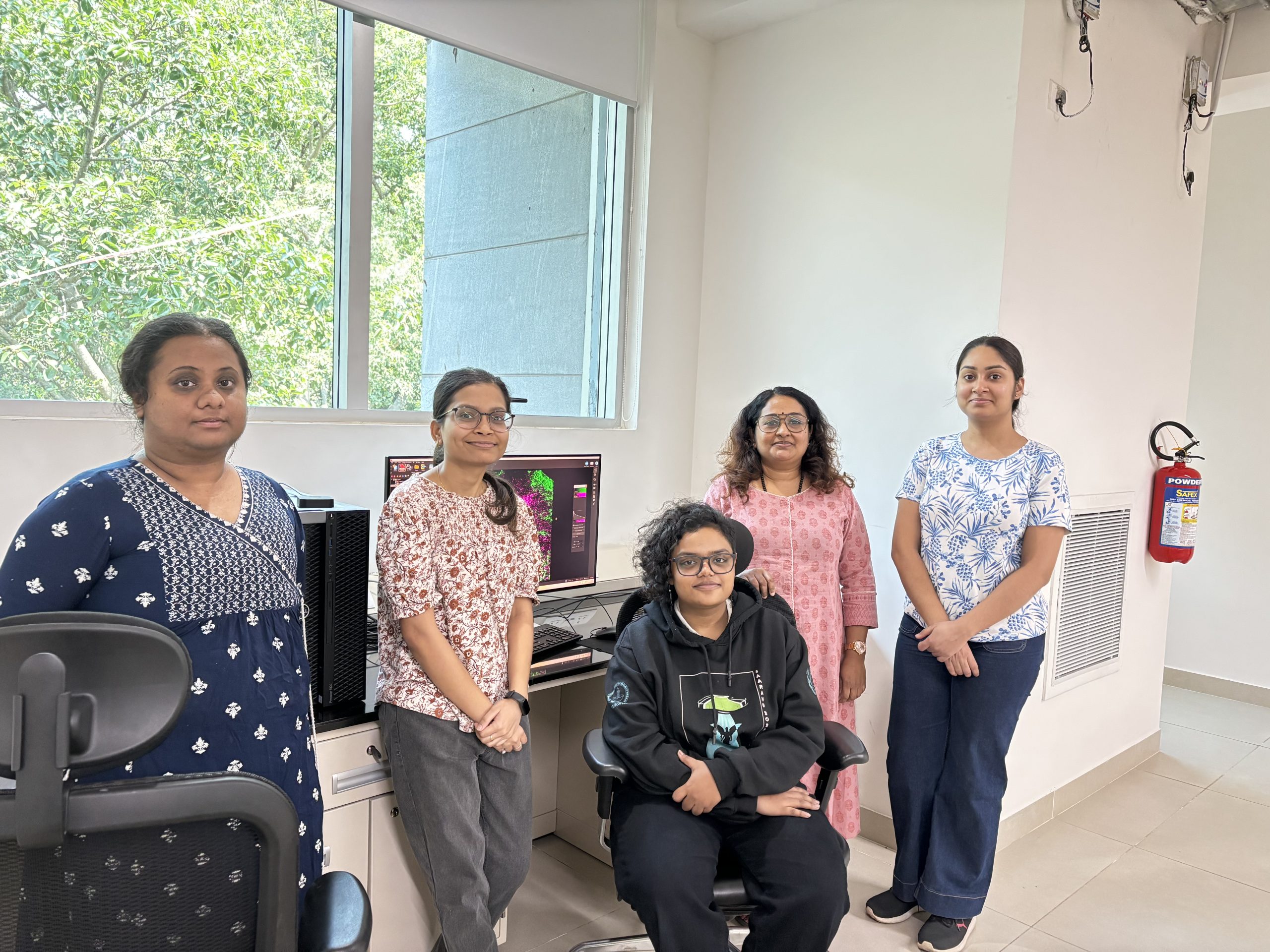


Lab Alumni
MASTER’S THESIS STUDENTS
- Deepannita Majumdar (St. Xaviers, Mumbai) – Nov 2023-Mar 2024
- Akshaya G (Anna University, Chennai) – Jan-May 2024
- Sharmatha R (Anna University, Chennai) – Jan-May 2024
- Shinjini Chatterjee (IISc, Bangalore) – May 2024-25
- Bhumika Mitra (VIT, Vellore) – Jan-Jun 2025
UNDERGRADUATE THESIS STUDENTS
- Jyotirmoy Biswal (IISc, Bangalore) – May 2023-24
IISc- MBBS/MPH INTERNS
- Omer Mohammed, Govt. Medical College, Kozhikode – Jun-Jul 2024
- Medhansh Kapoor, VMMC & Safdarjung Hospital, New Delhi – Jun-Jul 2024
UNDERGRADUATE INTERNS
- Shanice Jessica Hermon (INSPIRE scholar), NISER Bhubaneshwar – May-Jul 2019
- Akankshya Nayak (INSPIRE scholar), NISER Bhubaneshwar – May-Jul 2022
- Abhiram Sreekumar (INSPIRE scholar), NISER Bhubaneshwar – May-Jul 2023
- Saina Rath (INSPIRE scholar), NISER Bhubaneshwar – May-Jul 2023
- Anjali (INSPIRE scholar), IISER Mohali – May-Jul 2023
- Uyyashrinila P (INSPIRE scholar), IISER Pune – May-Jul 2023
- Jyotirmoy Biswal (CBRAIN scholar), IISc Bangalore – May-Jul 2023
- Gauri Srinath, IIT Gandhinagar – May-Jul 2023
- Rhea Sabharwal (INSPIRE scholar), St. Stephen’s College, Delhi – Jun-Aug 2024
- Preeti K, Yuvaraja’s College, Mysore – Aug-Nov 2024
PROJECT ASSISTANTS
- Ruby Gupta, Central University of Jharkhand – 2018-19
- Ruchika Agarwal, MS University, Baroda – 2019-20
- Abhijit Shankaran, School of Lifesciences, MAHE – 2020-21
Ravindranath V; SANSCOG Study Team. Srinivaspura Aging, Neuro Senescence and COGnition (SANSCOG) study: Study protocol. Alzheimer’s & Dementia. 2023 Jun;19:2450-2459. PMID: 36577090.
Kommaddi RP, Verma A, Muniz-Terrera G, Tiwari V, Chithanathan K, Diwakar L, Gowaikar R, Karunakaran S, Malo PK, Graff-Radford NR, Day GS, Laske C, Vöglein J, Nübling G, Ikeuchi T, Kasuga K; Dominantly Inherited Alzheimer Network (DIAN); Ravindranath V. Sex difference in evolution of cognitive decline: studies on mouse model and the Dominantly Inherited Alzheimer Network cohort. Translational Psychiatry. 2023 Apr 12;13:123. PMID: 37045867.
Sundarakumar JS, Shahul Hameed SK; SANSCOG Study Team; Ravindranath V. Burden of Vitamin D, Vitamin B12 and Folic Acid Deficiencies in an Aging, Rural Indian Community. Frontiers in Public Health. 2021 Sep 3;9:707036. PMID: 34540786
Karunakaran S#. Early beta adrenoceptor dependent time window for fear memory persistence in APPswe/PS1dE9 mice.Scientific Reports. 2021,11:870. PMID: 334415
Karunakaran S#.Unraveling Early Signs of Navigational Impairment in APPswe/PS1dE9 Mice Using Morris Water Maze. Front Neurosci. 2020,14:568200.PMID: 33384577
This article is part of the Research Topic Spring Hippocampal Research Conference and Beyond
Barodia SK, Prabhakaran K, Karunakaran S,Mishra V, Tapias V. Editorial: Mitochondria and Endoplasmic Reticulum Dysfunction in Parkinson’s Disease. Frontiers in Neuroscience. 2019 Nov 8 :1171. PMID: 31780882
Kommaddi RP, Tomar DS, Karunakaran S,Bapat D, Nanguneri S, Ray A, Schneider BL, Nair D, Ravindranath V. Glutaredoxin1 Diminishes Amyloid Beta-Mediated Oxidation of F-Actin and Reverses Cognitive Deficits in an Alzheimer’s Disease Mouse Model. Antioxidants & Redox Signaling. 2019 Dec 20:1321-1338. PMID: 31617375
Kommaddi RP, Das D, Karunakaran S,Nanguneri S, Bapat D, Ray A, Shaw E, Bennett DA, Nair D, Ravindranath V. ABeta mediates F-actin disassembly in dendritic spines leading to cognitive deficits in Alzheimer’s disease. The Journal of Neuroscience. 2017 Dec 15: 2127-17. PMID:29246925
Karunakaran S,Chowdhury A, Donato F, Quairiaux C, Michel CM, Caroni P. PV plasticity sustained through D1/5 dopamine signaling required for long-term memory consolidation. Nature Neuroscience. 2016 Mar;19(3):454-64. PMID:26807952.
Ray A, Sehgal N, Karunakaran S,Rangarajan G, Ravindranath V. Dopaminergic toxin MPTP activates ASK1-p38 MAPK death signaling pathway through TNF-dependent thioredoxin oxidation in Parkinsonism mouse model. Free Radical Biology and Medicine. 2015 Oct; 87: 312-25. PMID: 26164633.
Saeed U, Karunakaran S,Meka DP, Koumar RC, Ramakrishnan S, Joshi SD, Prakash N, Ravindranath V. Redox activated MAP kinase death signalling cascade initiated by ASK1 is not activated in female mice following MPTP – novel mechanism of neuroprotection. Neurotoxicity Research. 2009 Aug; 16(2): 116-26. PMID: 1952628
Karunakaran Sand Ravindranath V. Activation of p38 MAP kinase in the substantia nigra leads to nuclear translocation of NF-kB in MPTP treated mice: Implication in Parkinson’s disease. Journal of Neurochemistry. 2009 May 11; 109(6): 1791-1799. PMID: 19457134
Karunakaran S,Saeed U, Mishra M, Valli RK, Joshi SD, Meka DP, Seth P, Ravindranath V. Selective activation of p38 MAP kinase in dopaminergic neurons of substantia nigra leads to nuclear translocation of p53 in MPTP treated mice. The Journal of Neuroscience. 2008 Nov 19; 28(47): 12500-12509. PMID: 19020042
Karunakaran S,Saeed U, Ramakrishnan S, Koumar RC, Ravindranath V.Constitutive expression and functional characterization of mitochondrial glutaredoxin (Grx2) in mouse and human brain. Brain Research. 2007 Dec 14; 1185:8 – 17. PMID: 17961515
Karunakaran S,Diwakar L, Saeed U, Agarwal V, Ramakrishnan S, Iyengar S, Ravindranath V. Activation of apoptosis signal regulating kinase 1 (ASK1) and translocation of death-associated protein, Daxx, in substantia nigra pars compacta in a mouse model of Parkinson’s disease: protection by alpha-lipoic acid. The FASEB Journal 2007 Jul; 21(9): 2226 – 36. PMID: 17369508
-
Centre for Brain Research
Indian Institute of Science Campus
CV Raman Avenue
Bangalore 560012, India. - +91 80 2293 3735

